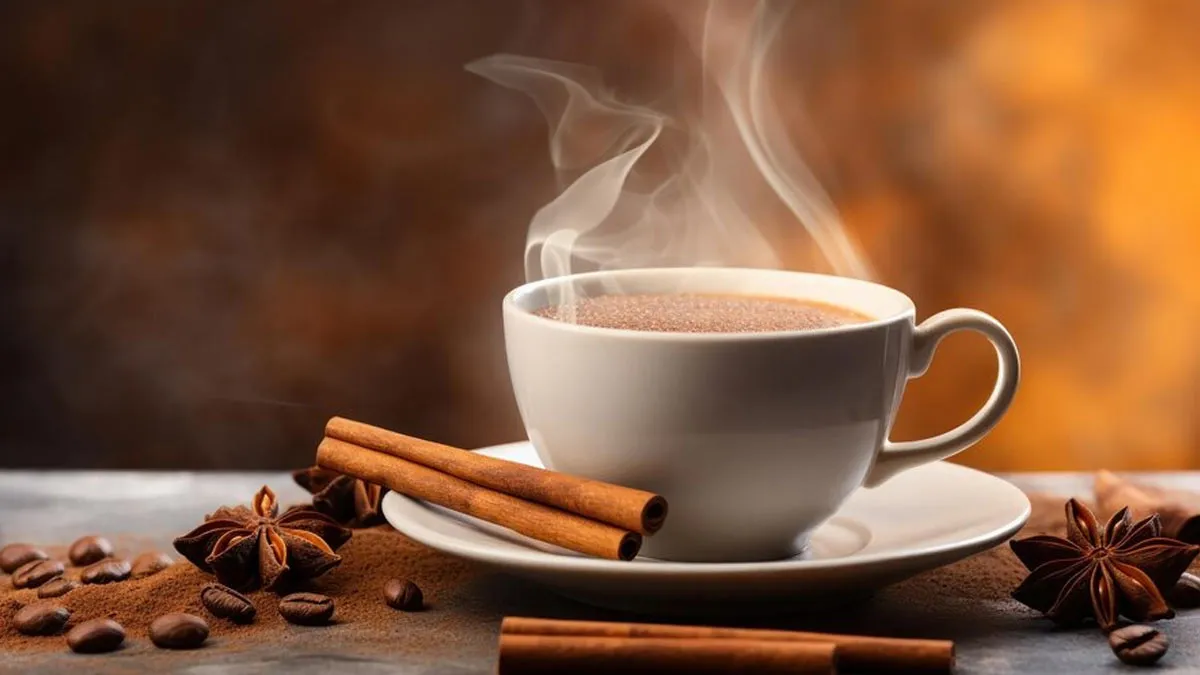
Starting the day with a comforting cup of tea is a ritual in many households, especially in India. However, for some, this morning practice might lead to bloating. If you’ve ever felt uneasy or puffy after your chai, and you wonder why that happens, here is everything you need to know.
Table of Content:-
Why Do We Feel Bloated After Having Tea?

Drinking tea on an empty stomach can trigger bloating due to its caffeine content. Caffeine stimulates the production of stomach acid, which can irritate the gastrointestinal tract. Fariha Shanam, Senior Dietician, Sir Ganga Ram Hospital, New Delhi, explains, “The Indian method of over-boiling tea leaves to create a strong, bitter brew further exacerbates acidity, which can lead to discomfort and bloating.”
Additionally, caffeine consumed early in the day can interfere with your body’s natural cortisol production. Cortisol, a hormone that regulates your sleep-wake cycle and provides energy, can be disrupted by early caffeine intake. This interference may leave you feeling sluggish and more prone to digestive issues later.
The Role Of Tannins
-1736507308875.jpg)
Tea leaves contain tannins, natural compounds responsible for their dry and slightly bitter taste. While beneficial in moderation, tannins can bind to proteins and nutrients in the digestive system, potentially causing irritation. When consumed on an empty stomach, tannins may lead to bloating, nausea, or a mild stomach ache.
Shanam highlights, “The nature of tannins, combined with the acidic environment created by over-boiled tea, can irritate the digestive lining, making bloating and discomfort more common.”
Milk Tea As A Trigger
Chai often includes milk and sugar, both of which can contribute to bloating. Individuals with lactose intolerance may experience gas or discomfort due to the milk, while added sugars or artificial sweeteners can also irritate the digestive system. Herbal teas, though usually milder, may contain carbonated ingredients that can cause gas, further adding to the problem.
Tips to Prevent Bloating After Tea

If you experience bloating after your morning tea, there are several strategies you can adopt to reduce discomfort. For starters, pair your tea with a light snack, such as toast or biscuits, to neutralise stomach acid and reduce irritation. Shanam advises us to avoid over-boiling tea leaves.
A lighter brew reduces tannin and caffeine concentration, making it gentler on the stomach. Additionally, it is advisable to go for herbal teas with soothing ingredients like ginger, peppermint, or chamomile that can help aid digestion and reduce bloating. Most importantly, drinking a glass of water before tea can help dilute stomach acid and prepare your digestive system.
Everyone reacts differently to tea, and the level of sensitivity can vary. While some can drink multiple cups a day without issues, others might feel bloated after just one. Monitoring your body’s response and making adjustments, such as reducing tea consumption or altering preparation methods, can make a significant difference.
As Shanam advises, small changes in how you prepare and consume tea, like sipping slowly or avoiding over-boiled tea, can help reduce bloating and enhance your tea-drinking experience.
Takeaway
Your morning tea is a comforting tradition, but understanding its effects on your body is crucial. The caffeine, tannins, and added ingredients in tea can sometimes lead to bloating, particularly when consumed on an empty stomach. By making small adjustments and listening to your body’s signals, you can continue enjoying your chai without discomfort.
Also watch this video
How we keep this article up to date:
We work with experts and keep a close eye on the latest in health and wellness. Whenever there is a new research or helpful information, we update our articles with accurate and useful advice.
Current Version